US Helplines:
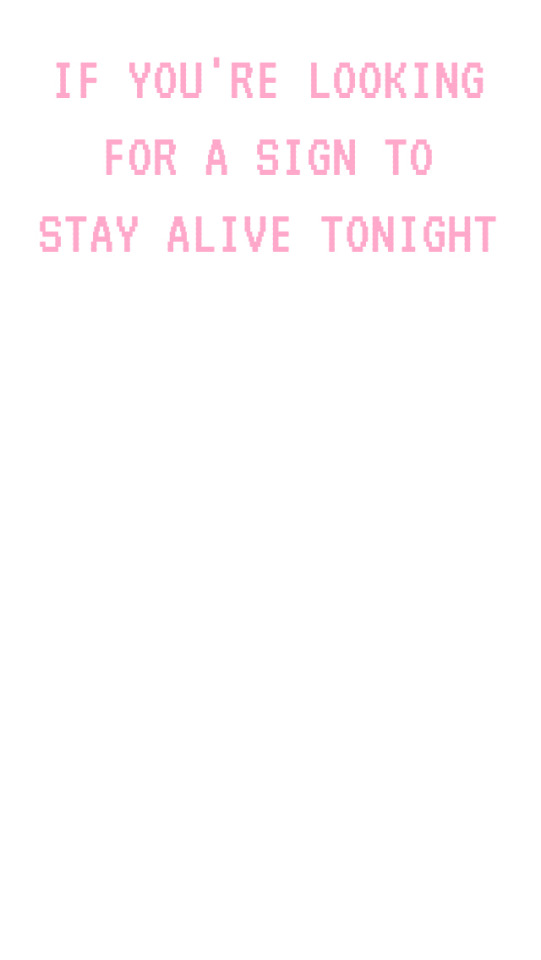
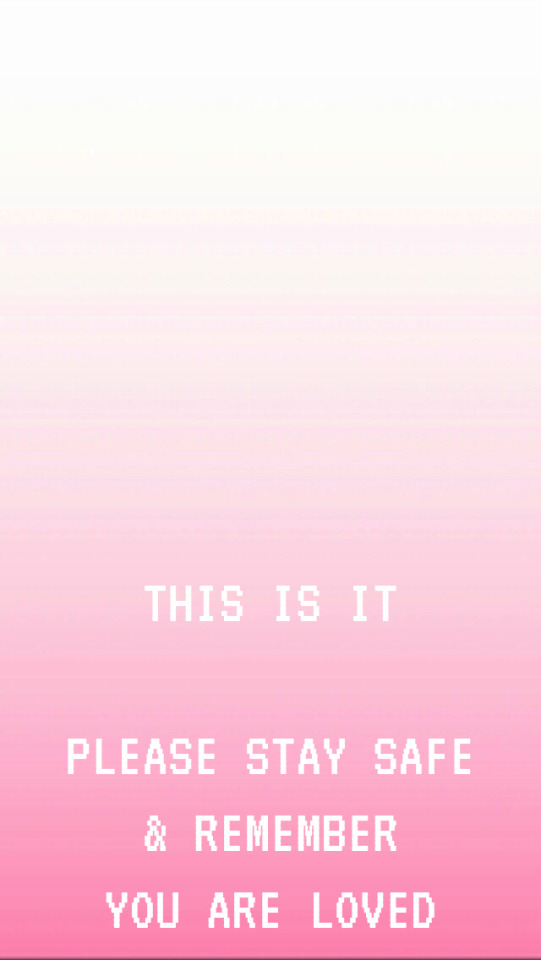
US Helplines:
Depression Hotline: 1-630-482-9696
Suicide Hotline: 1-800-784-8433
LifeLine: 1-800-273-8255
Trevor Project: 1-866-488-7386
Sexuality Support: 1-800-246-7743
Eating Disorders Hotline: 1-847-831-3438
Rape and Sexual Assault: 1-800-656-4673
Grief Support: 1-650-321-5272
Runaway: 1-800-843-5200, 1-800-843-5678, 1-800-621-4000
Exhale: After Abortion Hotline/Pro-Voice: 1-866-4394253
Child Abuse: 1-800-422-4453
UK Helplines:
Samaritans (for any problem): 08457909090 e-mail jo@samaritans.org
Childline (for anyone under 18 with any problem): 08001111
Mind infoline (mental health information): 0300 123 3393 e-mail: info@mind.org.uk
Mind legal advice (for people who need mental-health related legal advice): 0300 466 6463 legal@mind.org.uk
b-eat eating disorder support: 0845 634 14 14 (only open Mon-Fri 10.30am-8.30pm and Saturday 1pm-4.30pm) e-mail: help@b-eat.co.uk
b-eat youthline (for under 25’s with eating disorders): 08456347650 (open Mon-Fri 4.30pm - 8.30pm, Saturday 1pm-4.30pm)
Cruse Bereavement Care: 08444779400 e-mail: helpline@cruse.org.uk
Frank (information and advice on drugs): 0800776600
Drinkline: 0800 9178282
Rape Crisis England & Wales: 0808 802 9999 1(open 2 - 2.30pm 7 - 9.30pm) e-mail info@rapecrisis.org.uk
Rape Crisis Scotland: 08088 01 03 02 every day, 6pm to midnight
India Self Harm Hotline: 00 08001006614
India Suicide Helpline: 022-27546669
Kids Help Phone (Canada): 1-800-668-6868
FREE 24/7 suicide hotlines:
Argentina: 54-0223-493-0430
Australia: 13-11-14
Austria: 01-713-3374
Barbados: 429-9999
Belgium: 106
Botswana: 391-1270
Brazil: 21-233-9191
China: 852-2382-0000
(Hong Kong: 2389-2222)
Costa Rica: 606-253-5439
Croatia: 01-4833-888
Cyprus: 357-77-77-72-67
Czech Republic: 222-580-697, 476-701-908
Denmark: 70-201-201
Egypt: 762-1602
Estonia: 6-558-088
Finland: 040-5032199
France: 01-45-39-4000
Germany: 0800-181-0721
Greece: 1018
Guatemala: 502-234-1239
Holland: 0900-0767
Honduras: 504-237-3623
Hungary: 06-80-820-111
Iceland: 44-0-8457-90-90-90
Israel: 09-8892333
Italy: 06-705-4444
Japan: 3-5286-9090
Latvia: 6722-2922, 2772-2292
Malaysia: 03-756-8144
(Singapore: 1-800-221-4444)
Mexico: 525-510-2550
Netherlands: 0900-0767
New Zealand: 4-473-9739
New Guinea: 675-326-0011
Nicaragua: 505-268-6171
Norway: 47-815-33-300
Philippines: 02-896-9191
Poland: 52-70-000
Portugal: 239-72-10-10
Russia: 8-20-222-82-10
Spain: 91-459-00-50
South Africa: 0861-322-322
South Korea: 2-715-8600
Sweden: 031-711-2400
Switzerland: 143
Taiwan: 0800-788-995
Thailand: 02-249-9977
Trinidad and Tobago: 868-645-2800
Ukraine: 0487-327715
(Source)
More Posts from Carriongrrrl and Others
the feminine urge to buy an overpriced beverage and an overpriced pastry to go with said beverage
“One of the most important lessons I also learned from anarchism is that you need to look for the radical things that we already do and try to encourage them. This is why I think there is so much potential for anarchism in the Black community: so much of what we already do is anarchistic and doesn’t involve the state, the police, or the politicians. We look out for each other, we care for each other’s kids, we go to the store for each other, we find ways to protect our communities. Even churches still do things in a very communal way to some extent. I learned that there are ways to be radical without always passing out literature and telling people, “Here is the picture, if you read this you will automatically follow our organization and join the revolution.” For example, participation is a very important theme for anarchism and it is also very important in the Back community. Consider jazz: it is one of the best illustrations of an existing radical practice because it assumes a participatory connection between the individual and the collective and allows for the _expression of who you are, within a collective setting, based on the enjoyment and pleasure of the music itself. Our communities can be the same way. We can bring together all kinds of diverse perspectives to make music, to make revolution. How can we nurture every act of freedom? Whether it is with people on the job or the folks that hang out on the corner, how can we plan and work together? We need to learn from the different struggles around the world that are not based on vanguards. There are examples in Bolivia. There are the Zapatistas. There are groups in Senegal building social centers. You really have to look at people who are trying to live and not necessarily trying to come up with the most advanced ideas. We need to de-emphasize the abstract and focus what is happening on the ground.”
— [Black Anarchism] (via anarcutie)

Pro-homeless posters seen around Seattle. The poster message and it’s design is a direct response to an anti-homeless poster campaign in Seattle a week earlier that used the headline: “SEE A TENT? REPORT IT”

pamela love jewelry dagger earrings




via theestallion on IG
look i call myself queer for a couple of reasons, not all immediately obvious to the "queer is a slur" crowd.
like there's the immediate implication of this does not require me to explain my labels to you, but also the secondary implication of my existence as a radical statement. when queer people started calling themselves queer, it was an act of public defiance and rebellion.
queer says I don't need to justify myself to you or anyone, queer says I exist and I won't shut up about it, queer says we are a community and you cannot draw arbitrary dividing lines between us. queer is a good word for queer people.
when I find people who call themselves queer, I know they are the ones who won't try to say anyone doesn't belong in our community, that they will defend gay rights with trans rights, that they will stand up against the oppression that we all face, even if it doesn't affect them directly.
so yeah, i love being queer, calling myself queer, talking about the queer community, queer studies and queer theory and queer history. and I'm not going to stop because some of you think it's a slur.


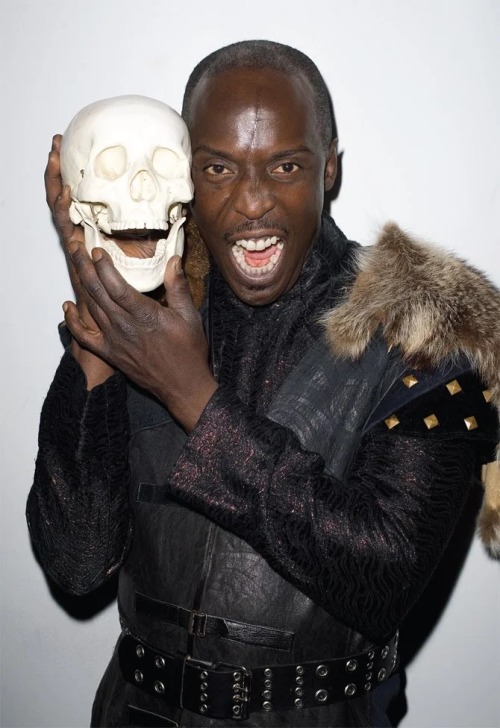

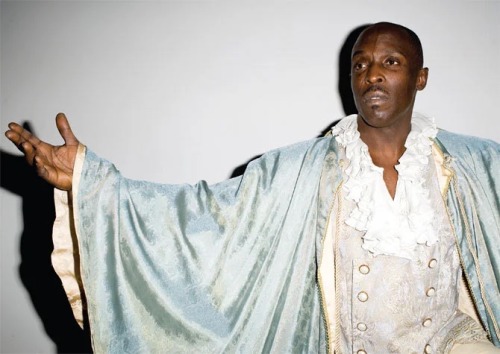
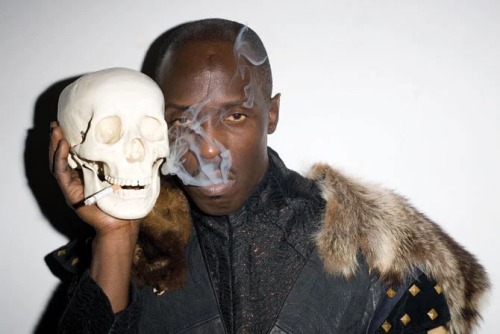
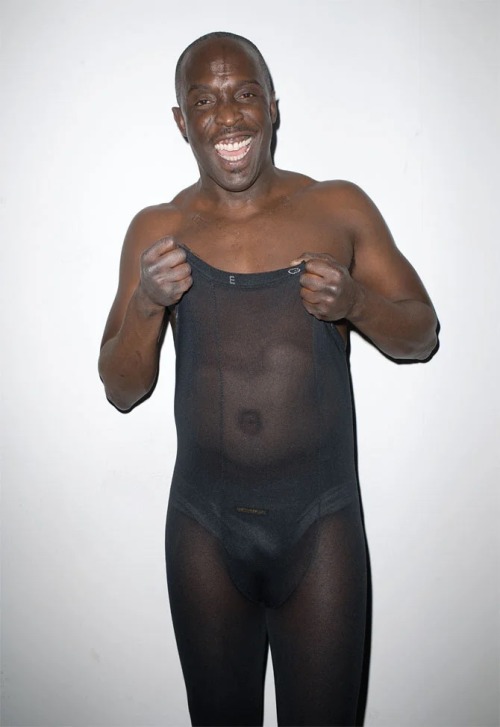
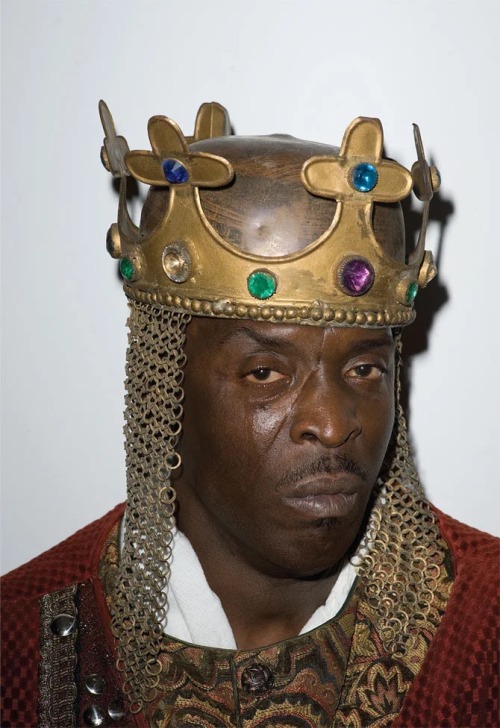
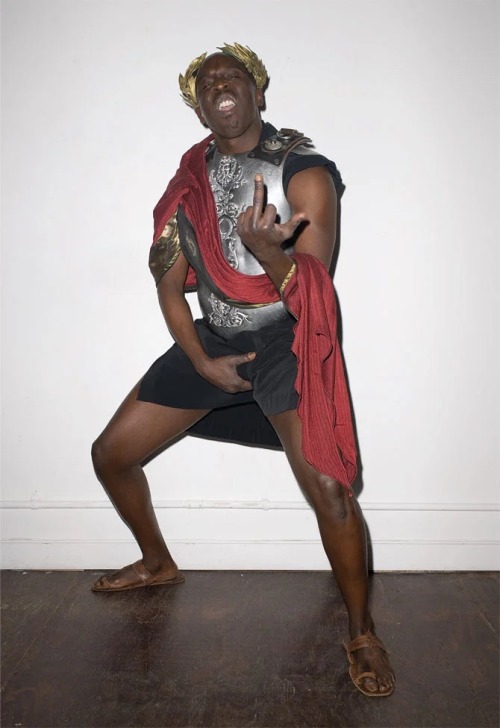

Michael K. Williams for the Shakespeare Theatre of New Jersey (2010)

Ganja & Hess (1974)

i went to target today and look at what i got. it’s so cute for why???
We need to dismantle the systems in place that allow white people to get away with offering black people sub-par services based on the excuse that our bodies are more difficult to work with. Black hair is not more difficult than white hair, it simply requires a different skill set. Tattooing vibrant tattoos on black skin isn’t more difficult than tattooing white skin, it simply requires a different skill set. Photographing black people isn’t more difficult than photographing white people, it simply requires an understanding of photography. Doing makeup on black skin isn’t more difficult than doing makeup on white skin, it simply requires different products. Working with black people is not more difficult than working with white people you’ve all just been taught that it’s not valuable and therefore not worth learning how.
-
 dumyhead reblogged this · 4 days ago
dumyhead reblogged this · 4 days ago -
 evilbubu reblogged this · 4 days ago
evilbubu reblogged this · 4 days ago -
 error84744838 liked this · 5 days ago
error84744838 liked this · 5 days ago -
 dannieboy594 reblogged this · 5 days ago
dannieboy594 reblogged this · 5 days ago -
 yliisnear liked this · 5 days ago
yliisnear liked this · 5 days ago -
 itsa-thing reblogged this · 5 days ago
itsa-thing reblogged this · 5 days ago -
 kiki-or-kimchi reblogged this · 5 days ago
kiki-or-kimchi reblogged this · 5 days ago -
 kiki-or-kimchi liked this · 5 days ago
kiki-or-kimchi liked this · 5 days ago -
 scroofy-was-here liked this · 5 days ago
scroofy-was-here liked this · 5 days ago -
 kandii-mantis liked this · 5 days ago
kandii-mantis liked this · 5 days ago -
 thisisanaltnow reblogged this · 5 days ago
thisisanaltnow reblogged this · 5 days ago -
 grich-witch reblogged this · 5 days ago
grich-witch reblogged this · 5 days ago -
 atsa-that-disabled-shit reblogged this · 5 days ago
atsa-that-disabled-shit reblogged this · 5 days ago -
 spiralling-spires liked this · 5 days ago
spiralling-spires liked this · 5 days ago -
 mitsuhachiinthehive reblogged this · 5 days ago
mitsuhachiinthehive reblogged this · 5 days ago -
 mitsuhachiinthehive liked this · 5 days ago
mitsuhachiinthehive liked this · 5 days ago -
 alternativeminiatures reblogged this · 6 days ago
alternativeminiatures reblogged this · 6 days ago -
 antarctic-octopus reblogged this · 6 days ago
antarctic-octopus reblogged this · 6 days ago -
 e3m5-inhabitant reblogged this · 6 days ago
e3m5-inhabitant reblogged this · 6 days ago -
 mandy-malady reblogged this · 6 days ago
mandy-malady reblogged this · 6 days ago -
 inkameswetrust liked this · 6 days ago
inkameswetrust liked this · 6 days ago -
 dakillercat reblogged this · 1 week ago
dakillercat reblogged this · 1 week ago -
 rocketkart95 reblogged this · 1 week ago
rocketkart95 reblogged this · 1 week ago -
 squeiky reblogged this · 1 week ago
squeiky reblogged this · 1 week ago -
 whatsmyfandom reblogged this · 1 week ago
whatsmyfandom reblogged this · 1 week ago -
 thestenchofcheeseandregrets reblogged this · 1 week ago
thestenchofcheeseandregrets reblogged this · 1 week ago -
 abugsomewhere liked this · 1 week ago
abugsomewhere liked this · 1 week ago -
 windexl0vr4life133 liked this · 1 week ago
windexl0vr4life133 liked this · 1 week ago -
 melodiclorekeeper liked this · 1 week ago
melodiclorekeeper liked this · 1 week ago -
 lady-buggg liked this · 1 week ago
lady-buggg liked this · 1 week ago -
 dabiscrustytoe reblogged this · 1 week ago
dabiscrustytoe reblogged this · 1 week ago -
 fandomtopiaforverr reblogged this · 1 week ago
fandomtopiaforverr reblogged this · 1 week ago -
 lemonsizzle reblogged this · 1 week ago
lemonsizzle reblogged this · 1 week ago -
 autumnace5002 reblogged this · 1 week ago
autumnace5002 reblogged this · 1 week ago -
 autumnace5002 liked this · 1 week ago
autumnace5002 liked this · 1 week ago -
 yumisaru reblogged this · 1 week ago
yumisaru reblogged this · 1 week ago -
 pemdas96 reblogged this · 1 week ago
pemdas96 reblogged this · 1 week ago -
 collection-of-fucking-chaos reblogged this · 1 week ago
collection-of-fucking-chaos reblogged this · 1 week ago -
 koko-blueturtle reblogged this · 1 week ago
koko-blueturtle reblogged this · 1 week ago -
 martianprincess01 reblogged this · 1 week ago
martianprincess01 reblogged this · 1 week ago -
 martianprincess01 liked this · 1 week ago
martianprincess01 liked this · 1 week ago -
 victormuscletop reblogged this · 1 week ago
victormuscletop reblogged this · 1 week ago -
 victormuscletop liked this · 1 week ago
victormuscletop liked this · 1 week ago -
 leniisreallycool reblogged this · 1 week ago
leniisreallycool reblogged this · 1 week ago -
 jesters-reblogs reblogged this · 1 week ago
jesters-reblogs reblogged this · 1 week ago -
 bibliophile4ever reblogged this · 1 week ago
bibliophile4ever reblogged this · 1 week ago -
 bojjeii reblogged this · 1 week ago
bojjeii reblogged this · 1 week ago -
 bojjeii liked this · 1 week ago
bojjeii liked this · 1 week ago -
 potatonugget7 reblogged this · 1 week ago
potatonugget7 reblogged this · 1 week ago